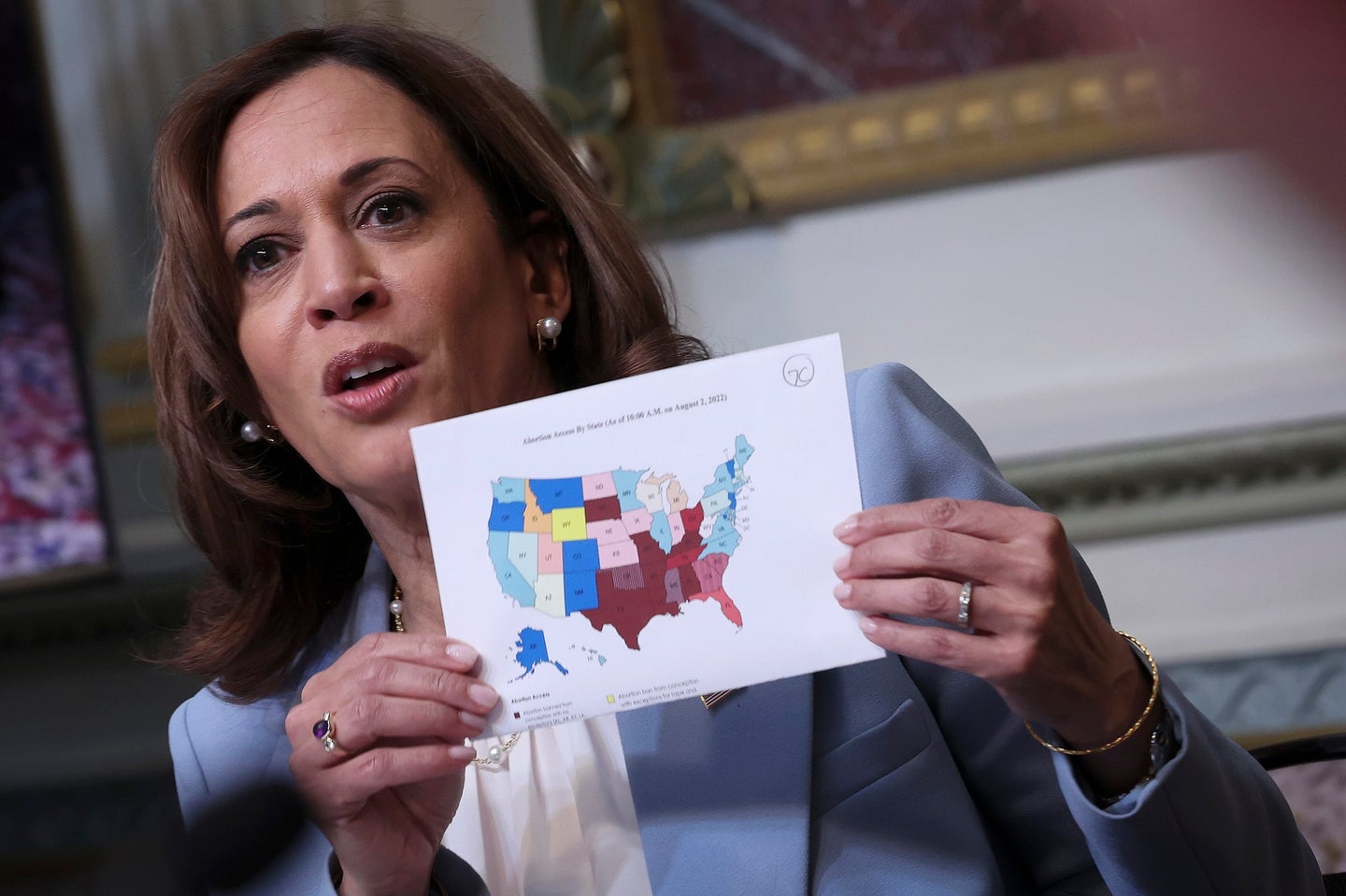The Biden administration plans to expand abortion access in all states
It's been 100 days since the Supreme Court overturned Roe v. Wade.

Today, President Joe Biden announced new guidelines and grants aimed to protect reproductive rights and discussed how abortion rights have been curtailed since Roe v. Wade was overturned by the Supreme Court of the United States in June. The address was given to the second meeting of the Reproductive Rights Task force, 100 days after the landmark decision in Dobbs v. Jackson Women’s Health Organization slashed nationwide abortion rights.
Vice President Kamala Harris began the meeting with an overview of the work the administration has done in the past three months and highlighted several developments in the wake of the decision, including a ban on healthcare providers advising students on contraception use at University of Idaho. “One does not have to abandon their faith or beliefs to agree that the government should not make these decisions for women,” she said in her address.
President Biden reiterated the need for a nationwide law that would overrule some of the recent state legislation that does not allow for abortions, even in cases of rape, incest, and when the mother’s life is at stake. “There’s no pushing back from that. It’s also pushing laws to not allow for rape, or incest, President Biden announces new reproductive rights guidelines to expand abortion access the life of the mother in some cases,” he said.
The task force was joined by physicians who detailed their experiences since the decision, including having to deny medication for miscarriage management and turn away patients that could be helped due to changes in the laws. They also noted that the US maternal mortality rate is already the highest among wealthy countries, and could only get worse from this decision.
[Related: What science tells us about abortion bans.]
A report sent to the White House from Jennifer Klein, director of the White House Gender Policy Council, further describes how millions of people in the US now cannot access abortion services and medical professionals are facing criminal penalties for providing such services. Since June 24, 2022, abortion bans have gone into effect in more than 12 states, according to Klein’s letter. It said that nearly 30 million women of reproductive age currently live in a state with a ban, with nearly 22 million of them unable to access abortion care after six weeks, and notes the efforts by Republican lawmakers such as Senator Lindsay Graham to issue a nationwide ban on abortion.
Education Secretary Miguel Cardona spoke at the meeting, too, discussing his department’s new guidance for universities, which highlights the requirement that higher education institutions protect pregnant students from discrimination required by Title IX. It reminds colleges and universities that they must treat pregnancy, childbirth, and abortion “the same as any temporary disability” under their health insurance plans. The summary follows the Education Department’s proposed revisions to Title IX that include clarification on the protections of pregnant people experiencing pregnancy-related conditions.
Department of Health and Human Services Secretary Xavier Becerra discussed more than $6 million in Title X Family Planning Research grants, Research-to-Practice Center grants, and Teenage Pregnancy Prevention Evaluation and Research grants that aim to “protect and expand access to reproductive health care and improve service delivery, promote the adoption of healthy behaviors, and reduce existing health disparities.”
“These new research grants will provide insights that will help our community partners provide essential, client-centered reproductive health services,” said Rachel Levine, assistant secretary for health, in a press release.
[Related: The US can’t agree on what a ‘life-saving abortion’ means.]
It follows up similar action from President Biden to safeguard reproductive rights over the summer. He signed an executive order in August that aims to help people who must travel out of state to receive abortions, ensures that healthcare providers nationwide are complying with federal law so that care isn’t delayed, and advances research and data collection regarding how the Dobbs v. Jackson ruling is affecting necessary healthcare. In July, he signed a separate executive order to help safeguard access to both contraception and abortion care, protect patient privacy, and establish a task force on reproductive healthcare access. The White House has also maintained a public pressure campaign, reacting to state efforts to restrict abortion access.
At today’s conference, four physicians presented their experience over the past 100 days. Kristin Lyerly, a general OB-GYN in Green Bay, Wisconsin, discussed how a statute stemming from a state law dating back to 1849 makes it a felony to provide abortion care and affects rural communities. She also had a warning for the rest of the country. “Downstream, this affects all of us. With physical burnout at an all time high and a number of physicians leaving the field in the wake of the pandemic, our training programs can’t keep up. Medical students who had planned to stay and practice in Wisconsin are now wondering if they will receive the training that they need to take care of their patients, and whether they can live and work in a state where doctors can be jailed for fulfilling their duty of care.”
Jamila Perritt, president of Physicians for Reproductive Health, reiterated Lyerly’s concerns saying, “Abortion is healthcare. It is our human right. It is safe.”
